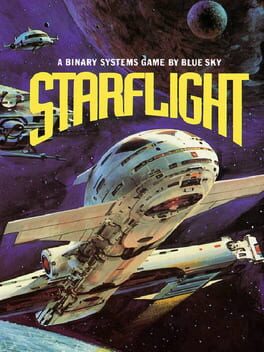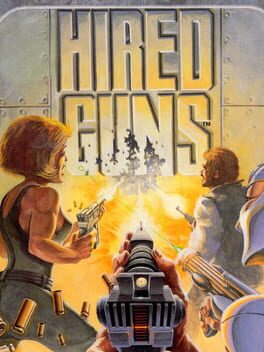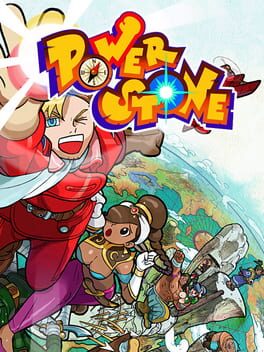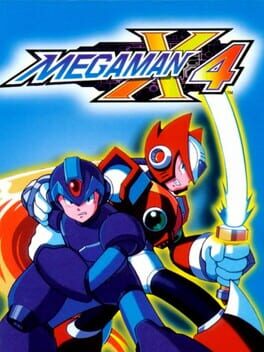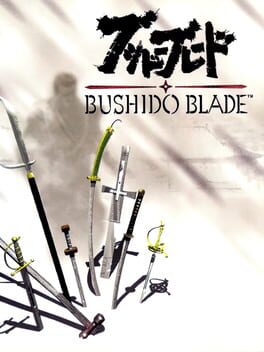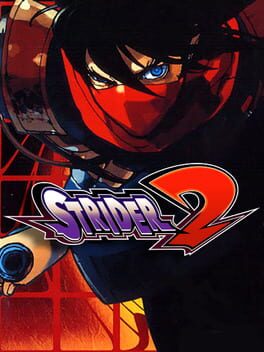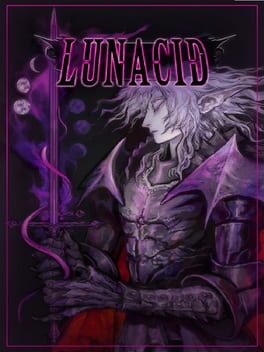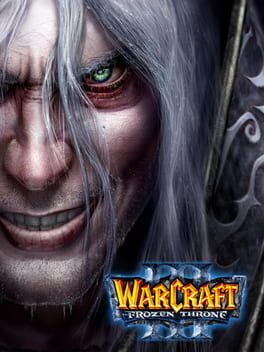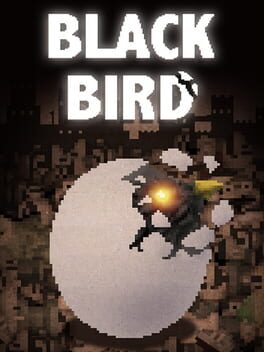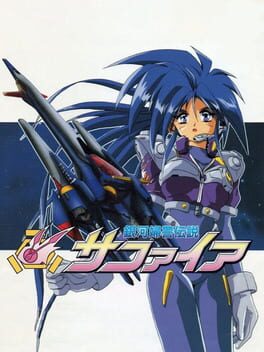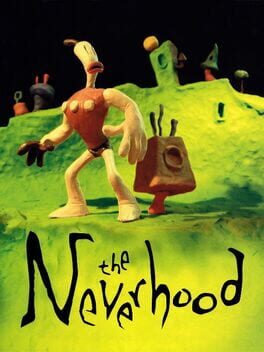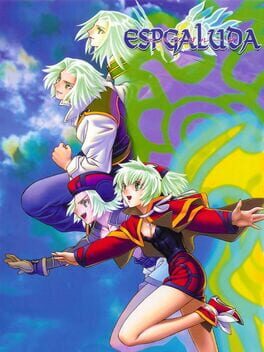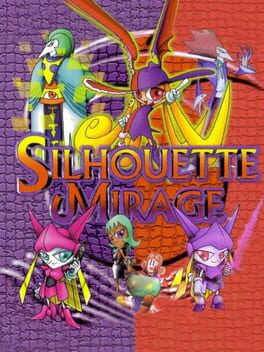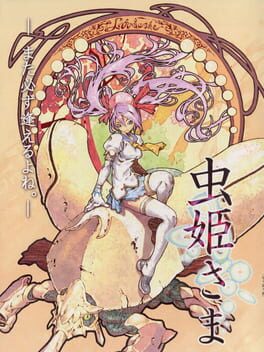ArcadePlus
1986
1993
1999
Super Smash Brothers eyes this title with "there but for the grace of God go I" sentiment welling up in it's heart. This is the party-fighting-FFA game road not taken, and it's not that hard to see why. It's as shallow as a kiddie pool, but as fun as a water park -- you want to play for 6 hours twice a year.
1997
Modernist masterpiece in the truest sense of the word. The classic Mega Man games are slow, and methodical, and focused on 1-screen obstacle courses navigated one at a time. They've got some memorable chiptunes and a smidge of story here and there, but they're comparatively simple games. Good consistent controls and mechanics applied to a basic level design concept.
Mega Man X changed that. It added speed, and heft, and power to a game that was rather light and floaty. It introduced upgrade progression, enhanced graphics, better music, more story. It was about moving foreword, and pushing games technically by making them bigger, and louder. Mega Man X4 is Meliorism manifest: It just continues the strikingly 20th century trend of more, more more. More characters, more detailed spritework, better music, more upgrades, more weapons. It's even faster, even sleeker, filled with just more of everything, including voice-acting and cut scenes straight from a $2 OVA you'd find in the back of the SunCoast video.
It works staggeringly well. Sometimes it's good to remind ourselves that our Indie-pilled contemporary critical emphasis on minimalism and low-tech game-design sensibilities is a reaction to the opulent disgusting excess of the AAA slop that has been getting pumped out for the past decade. But that general approach, of enhancing the formula of the past with capital-b Bigness, wasn't always a nausea-inducing exercise in poor taste, and Mega Man X4 is proof. This game is fucking wicked, and you'll love everything about it. It's a straight, linear, modernist shot from Mega Man 2 to Mega Man X to Mega Man X4, every title getting louder, and harder, and stronger, and ultimately better.
Mega Man X changed that. It added speed, and heft, and power to a game that was rather light and floaty. It introduced upgrade progression, enhanced graphics, better music, more story. It was about moving foreword, and pushing games technically by making them bigger, and louder. Mega Man X4 is Meliorism manifest: It just continues the strikingly 20th century trend of more, more more. More characters, more detailed spritework, better music, more upgrades, more weapons. It's even faster, even sleeker, filled with just more of everything, including voice-acting and cut scenes straight from a $2 OVA you'd find in the back of the SunCoast video.
It works staggeringly well. Sometimes it's good to remind ourselves that our Indie-pilled contemporary critical emphasis on minimalism and low-tech game-design sensibilities is a reaction to the opulent disgusting excess of the AAA slop that has been getting pumped out for the past decade. But that general approach, of enhancing the formula of the past with capital-b Bigness, wasn't always a nausea-inducing exercise in poor taste, and Mega Man X4 is proof. This game is fucking wicked, and you'll love everything about it. It's a straight, linear, modernist shot from Mega Man 2 to Mega Man X to Mega Man X4, every title getting louder, and harder, and stronger, and ultimately better.
1997
What the hell do people see in this game? Slow, cumbersome, nonsensical combat. Your characters can barely move around. It seems completely random whether or not my hits connect, as my polygonal sword goes right through their character model with no effect and then they 1HKO me in an inscrutable stochastic mess. What am I not getting here?
1999
The emphasis of Strider 2 is all on the movement. They intentionally truncate and limit your offensive options to melee only, with 1 power-up temporarily granting you some ranged damage, but offer you dozens of ways of avoiding damage and closing distance through double-jumping, sliding, trajectory changes, and wall grappling. The movement is fluid and satisfying. The game is on the easier side you just credit-feed you're way through it like a precocious 8 year old arcade-goer with a pocket full of daddy's money, but like most arcade games, the difficulty of Strider 2 is to be judged by it's 1CC, which is no simple feat.
The presentation is great. I love the 2D pixel art against low-poly 3D backgrounds, an art style that time forgot but that lives on in my heart whenever I play Strider 2 or Dolphin Blue. The music is serviceable, and there are no real salient flaws of the presentation here. The environments are excellent, and even in spite of it's simplistic gameplay, the environments work to incorporate both aesthetic and gameplay variety, with wind resistance and zero-gravity situations both awkwardly thrust upon you.
But there are some flaws: I still feel that weapon variety is too low, that most of the game is still too easy, that the music is nothing special, and that it's overall a little too simplistic. My modernized combat sensibilities cry out for block and parry options. But most everything that is actually in the game is done with excellence.
The presentation is great. I love the 2D pixel art against low-poly 3D backgrounds, an art style that time forgot but that lives on in my heart whenever I play Strider 2 or Dolphin Blue. The music is serviceable, and there are no real salient flaws of the presentation here. The environments are excellent, and even in spite of it's simplistic gameplay, the environments work to incorporate both aesthetic and gameplay variety, with wind resistance and zero-gravity situations both awkwardly thrust upon you.
But there are some flaws: I still feel that weapon variety is too low, that most of the game is still too easy, that the music is nothing special, and that it's overall a little too simplistic. My modernized combat sensibilities cry out for block and parry options. But most everything that is actually in the game is done with excellence.
2022
This review contains spoilers
What I love about Lunacid, like everyone who played this game, is it's atmosphere and the aesthetic of it's environments. I loved discovering new spells, new weapons, and new enemies just because I wanted to see what was in this world, and I rather liked exploring (most) of the environments in which these things were embedded. This game inflamed my curiosity and that compelled me to literally 100% it. And, overdone as they are, I am a huge sucker for meta-textual narratives about the video game format itself. One really get the impression that this guy played Moon Remix RPG.
But the game IS flawed. As everyone has noted, this game is heavily inspired by King's Field, the FromSoftware dungeon crawler franchise which started on the PSX, and which Demon's Souls was a thematic offshoot and spiritual successor. In many ways, this game is an unholy union of King's Field and sleek, smooth, "modern" game design sensibilities. King's Field is extremely slow and plodding, with sluggish combat and languid movement. The whole world feels very hostile to you, and that hostility is instantiated in the very mechanics, with Tomb Raidery controls aggravating anyone who was born after 1998 that deigns to boot a fan-patched english translation on Duckstation. Lunacid, however, makes the player too strong and too fast. The environments achieve their aesthetic goals, but in terms of gameplay, they're rather safe and boring. There is an occasional trap, or some easily-avoided lava, but the environments should be more hazardous in ways outside of just the enemies which litter the screen.
Those same enemies, by the way, become trivially easy to beat, especially if you're a magic user, and regardless of the difficulty slider, by about the 4th area. The game cannot scale its challenge with the capabilities which it gives the player for speed and damage. i loved the spells, I loved the design and the environmental resistances and I could see the possibilities, but I beat about 3/4 of the game with literally the very first fire spell I ever equipped and nothing else. Which is not in itself bad -- I still used the other spells, just because I thought they were fun, whether or not a given combat situation called for them. That is a fine feature, but it cannot be the case that my own exploratory instincts and penchant for fun is the only thing apprehending my available choices -- the game should force me to make more decisions more often than it does.
Overall, I actually kind of love this game for what it is, but it doesn't feel finished. Yeah, there are some traps, and some environmental hazards, and some unique spell-environment interactions, and some interesting combat situations, but there are not enough of any of those categories. This game is the embodiment of an oft-quoted admonition to be careful what one wishes for. Many people clamor for updated and modernized versions of classic games, with better QoL, better controls, more intuitive mechanics and menus, and so on. The barriers to entry for the average game player to actually go back and play those archaic masterpieces seem onerous. Be careful not to lock yourself in the Iron Cage of Weberian rationalization for the games you design, especially if the thematic point of the game is to be unnavigable!
But the game IS flawed. As everyone has noted, this game is heavily inspired by King's Field, the FromSoftware dungeon crawler franchise which started on the PSX, and which Demon's Souls was a thematic offshoot and spiritual successor. In many ways, this game is an unholy union of King's Field and sleek, smooth, "modern" game design sensibilities. King's Field is extremely slow and plodding, with sluggish combat and languid movement. The whole world feels very hostile to you, and that hostility is instantiated in the very mechanics, with Tomb Raidery controls aggravating anyone who was born after 1998 that deigns to boot a fan-patched english translation on Duckstation. Lunacid, however, makes the player too strong and too fast. The environments achieve their aesthetic goals, but in terms of gameplay, they're rather safe and boring. There is an occasional trap, or some easily-avoided lava, but the environments should be more hazardous in ways outside of just the enemies which litter the screen.
Those same enemies, by the way, become trivially easy to beat, especially if you're a magic user, and regardless of the difficulty slider, by about the 4th area. The game cannot scale its challenge with the capabilities which it gives the player for speed and damage. i loved the spells, I loved the design and the environmental resistances and I could see the possibilities, but I beat about 3/4 of the game with literally the very first fire spell I ever equipped and nothing else. Which is not in itself bad -- I still used the other spells, just because I thought they were fun, whether or not a given combat situation called for them. That is a fine feature, but it cannot be the case that my own exploratory instincts and penchant for fun is the only thing apprehending my available choices -- the game should force me to make more decisions more often than it does.
Overall, I actually kind of love this game for what it is, but it doesn't feel finished. Yeah, there are some traps, and some environmental hazards, and some unique spell-environment interactions, and some interesting combat situations, but there are not enough of any of those categories. This game is the embodiment of an oft-quoted admonition to be careful what one wishes for. Many people clamor for updated and modernized versions of classic games, with better QoL, better controls, more intuitive mechanics and menus, and so on. The barriers to entry for the average game player to actually go back and play those archaic masterpieces seem onerous. Be careful not to lock yourself in the Iron Cage of Weberian rationalization for the games you design, especially if the thematic point of the game is to be unnavigable!
I was there in the portentous eruption of RTS games in the late 90's and early 2000's. From Command and Conquer, to Rise of Nations, to Age of Empires, to Empire Earth, to Total Annihilation, a clear and obvious trend established itself.
Difficult as it might be to imagine now, the RTS genre was once novel and was a prestige genre for the PC, displaying it's computational capabilities and the open-endedness of the mouse-keyboard as an input system compared to the controller of a home console. The trend was quickly established, that every game just needed to be bigger than the last. Larger supply caps, bigger armies, larger maps, more resource types, ages, eras, more complicated tech trees. The creeping growth in content belied the actually languishing of the genre -- there was no growth or innovation in design, or style. No matter how big the battles or how long the game lasted, you could not escape the feeling that you were just playing the same game over and over again.
Warcraft III took a different approach. They shrank the scale of the average RTS game, and forced a focus on intimately and intricately controlling small amounts of units in interesting ways. The upkeep mechanic forces the player to choose between an efficient economy and a large army. The heroes, the leveling, and the items on the map tax the multitasking of the average player, forcing them to attend actively to their army. The strong emphasis on skirmishing and micro, and the intentional nerf on the macro side of the genre, was a genuine innovation, and Blizzard countered the boring fungal growth of "scale" as the definitive feature of the genre. They went the opposite direction of the industry at the time, and in doing so, they made an RTS which is even today utterly unique. You will not play another game quite like this.
Difficult as it might be to imagine now, the RTS genre was once novel and was a prestige genre for the PC, displaying it's computational capabilities and the open-endedness of the mouse-keyboard as an input system compared to the controller of a home console. The trend was quickly established, that every game just needed to be bigger than the last. Larger supply caps, bigger armies, larger maps, more resource types, ages, eras, more complicated tech trees. The creeping growth in content belied the actually languishing of the genre -- there was no growth or innovation in design, or style. No matter how big the battles or how long the game lasted, you could not escape the feeling that you were just playing the same game over and over again.
Warcraft III took a different approach. They shrank the scale of the average RTS game, and forced a focus on intimately and intricately controlling small amounts of units in interesting ways. The upkeep mechanic forces the player to choose between an efficient economy and a large army. The heroes, the leveling, and the items on the map tax the multitasking of the average player, forcing them to attend actively to their army. The strong emphasis on skirmishing and micro, and the intentional nerf on the macro side of the genre, was a genuine innovation, and Blizzard countered the boring fungal growth of "scale" as the definitive feature of the genre. They went the opposite direction of the industry at the time, and in doing so, they made an RTS which is even today utterly unique. You will not play another game quite like this.
2018
The presentation in this game is simply amazing. The soundtrack is incredible, instantly resonating with me. the visuals are not only technically impressive but genuinely gorgeous in the way that only facsimiles of low-poly early 3D graphics can be.
The issue is the gameplay. 3/4 of the ships available to you will only smear across your screen like frozen molasses in vain attempts to dodge unreasonably swift bullets, while you're lugging around a gargantuan hitbox. The sprite scaling is off: This is a vertical STG and the screen is just too crowded. There is very little room to react or maneuver. It plays like it wants to be a TATE game, but it sadly isn't and the gameplay just leaves you frustrated, Extremely memorization heavy for the 1CC.
The issue is the gameplay. 3/4 of the ships available to you will only smear across your screen like frozen molasses in vain attempts to dodge unreasonably swift bullets, while you're lugging around a gargantuan hitbox. The sprite scaling is off: This is a vertical STG and the screen is just too crowded. There is very little room to react or maneuver. It plays like it wants to be a TATE game, but it sadly isn't and the gameplay just leaves you frustrated, Extremely memorization heavy for the 1CC.
1996
It's been said that "quantity is a quality all it's own", and I'd like to invoke that sentiment to suggest that Weirdness and personality can be a substitute for substance, which I think is true in varying degrees depending on the material. This substitution is well above ersatz in The Neverhood; it has a style and a presentation which is instantly forever memorable and that deserves respect. On the other hand, I don't actually like playing it very much, and I don't think peculiarity can entirely replace any fledging semblance of a conventional narrative or structure. Still worth playing though.
2022
2003
You think this is an STG? Imbecile. You fool. This is a Tantalus Simulator.
The 1CC seems so doable. Your hitbox is genuinely miniscule. Following Cave's conventions, the bullet speeds and patterns are downright reasonable, at least compared to Raizing or Psikyo games. You even have an alt-fire mode that slows the bullets down more. 3 lives. A generous screen clear. It's so easy to convince yourself that this is the game, this is it. This is finally the Cave game that you 1CC.
Don't kid yourself. Whenever you bend down to drink the water at your feet, or reach above to the ripe fruit above your head which seems ever so close, Cave crushes you into the dirt in a way that feels embarrassingly fair.
Still prefer ESP Da. Re. though.
The 1CC seems so doable. Your hitbox is genuinely miniscule. Following Cave's conventions, the bullet speeds and patterns are downright reasonable, at least compared to Raizing or Psikyo games. You even have an alt-fire mode that slows the bullets down more. 3 lives. A generous screen clear. It's so easy to convince yourself that this is the game, this is it. This is finally the Cave game that you 1CC.
Don't kid yourself. Whenever you bend down to drink the water at your feet, or reach above to the ripe fruit above your head which seems ever so close, Cave crushes you into the dirt in a way that feels embarrassingly fair.
Still prefer ESP Da. Re. though.
1997
Treasure's eyes are often too big for their stomach. For every Ikaruga, Mischief Makers, or Gunstar Heroes that feels excellent and plays like a well-oiled machine with flow state mastery available to you with "just-around-the-corner" closeness, there is an Alien Soldier, Guardian Heroes, or Silhouette Mirage: games so stuffed with controls and mechanics that it makes Paula Dean wet her eyes with envy.
There are just too many systems vying for your attention in this game. It's well-made, with good visuals and music, but even after beating it, the game's controls feel foreign to me. I love that Treasure tries to do things different with the genres they put their hands on; I love that this doesn't feel like a Mega Man game or a Castlevania game. But I wish it felt like something other than what it actually is.
There are just too many systems vying for your attention in this game. It's well-made, with good visuals and music, but even after beating it, the game's controls feel foreign to me. I love that Treasure tries to do things different with the genres they put their hands on; I love that this doesn't feel like a Mega Man game or a Castlevania game. But I wish it felt like something other than what it actually is.
2004
Between Ikrauga's color system, R-Type's force pod, G-Darius' capture ball, the Rayforce Shot, et cetera, developers in this genre are tripping over themselves to differentiate their titles mechanically in ways that range from ingenious to gimmicky.
Cave has a different approach. There is practically nothing in this game but shooting, dodging, and bombs, but the fundamentals in this game are so balanced, and so satisfying, and so well-engineered that it's like eating at a Michelin star restaurant that only serves bread and butter.
Cave has a different approach. There is practically nothing in this game but shooting, dodging, and bombs, but the fundamentals in this game are so balanced, and so satisfying, and so well-engineered that it's like eating at a Michelin star restaurant that only serves bread and butter.
